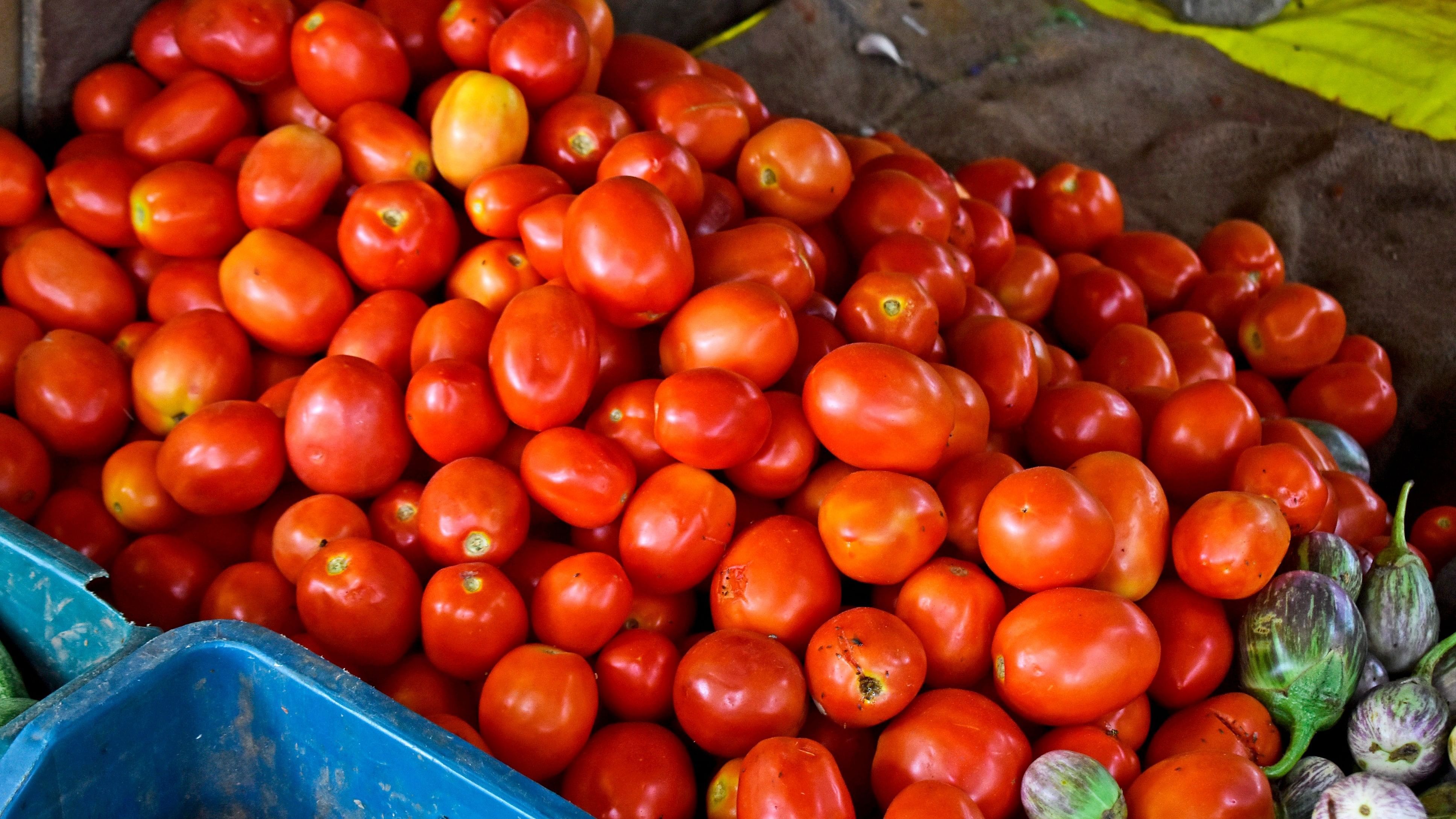
The political unrest in neighbouring Bangladesh has impacted farmers of Kolar, with tomato prices crashing as West Bengal’s traders are unable to transport them to Bangladesh.
Credit: PTI Photo
Kolar: The political unrest in neighbouring Bangladesh has impacted farmers of Kolar, with tomato prices crashing as West Bengal’s traders are unable to transport them to Bangladesh.
A box of first-grade tomatoes (weighing approximately 15 kg), which was being sold for Rs 1,100 to Rs 1,200 before the unrest began in Bangladesh, is now being sold for Rs 350 to Rs 480 a box. At Kolar APMC, the prices of tomatoes crashed from Rs 40 a kg a fortnight ago to Rs 12 a kg. (The wholesale price at Kolar APMC is around Rs 100 to Rs 400 a box).
West Bengal traders have cut down the purchase of tomatoes by nearly 50%, according to officials.
Kolar APMC secretary Kiran Narayanswamy said, “Around 40 to 50 trucks of tomatoes were being transported from Kolar to West Bengal every day before the first week of August. Now, the quantity has come down to 20 trucks a day.”
West Bengal’s traders used to buy first-grade tomatoes from Kolar Agricultural Produce Market Committee (APMC) for local consumption and export to Bangladesh. Kolar APMC is one of the biggest markets for tomatoes in the country.
The high-quality tomatoes used to fetch farmers of Karnataka, mostly concentrated in and around Kolar, a decent price. However, with the halt in the export of tomatoes, the prices have come down drastically.
This has led to a drop in retail prices of tomatoes in the markets of Karnataka. A kg of tomato is being sold for anywhere between Rs 16 and Rs 20 a kg across the state.
Apart from West Bengal, tomatoes from Kolar are in high demand in markets of Tamil Nadu, Kerala and Andhra Pradesh. Tomatoes cultivated on nearly 4,000 ha of land in the district are also supplied to several markets in Karnataka, including Bengaluru.
Shartaz Khan, a Kolar-based trader, says due to unrest in Bangladesh, Indian officials at the borders are not allowing vehicles to cross the border. “A section of truck drivers in West Bengal are also afraid to travel to Bangladesh. So, we are catering only to the domestic market,” he says.
The recent landslide in Wayanad has also affected the sale of tomatoes to Kerala, resulting in a fall in prices.
“The good monsoon had given us hope that the Kharif yield of tomatoes will fetch us a good price. However, the slide in prices started from the Wayanad landslide, when the prices of tomatoes crashed from Rs 60 a kg to Rs 40 for two kgs as we could not transport these highly perishable goods to Kerala,” says Ravi T N, a tomato farmer at Tharanahalli. He fears that the prices of Kolar tomatoes can go down further as Maharashtra, Tamil Nadu and farmers in other states are cultivating them in good quantities.